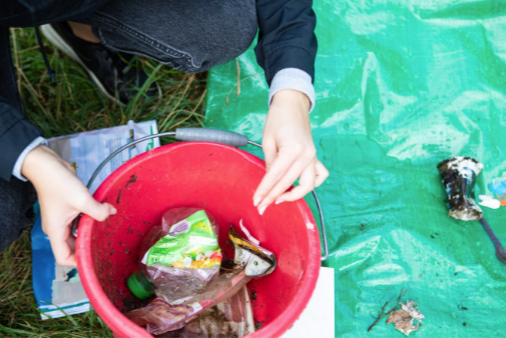
Plastic Pirates EU is a citizen science project that is enabling young people to gather data on plastic pollution in Europe’s waterways. We caught up with project coordinator Philip Ackermann, to find out more.
Hi Philip, can you tell us about the Mission Ocean project you are working on?
“Certainly. I'm Philip Ackermann, the coordinator of the Plastic Pirates EU initiative. Our project aims to expand the Plastic Pirates Go Europe Citizen Science Initiative over 30 months, focusing on plastic pollution.”
Could you outline the problem of ‘plastic pollution’ and how your project is tackling it?
“We face a significant issue with pollution, especially plastic pollution in freshwater and marine ecosystems. Approximately 80% of this pollution originates from rivers, making it crucial to address the problem at its source. There's a notable data gap regarding the types and amounts of plastic flowing into our oceans, which our initiative aims to fill.
The Plastic Pirates Citizen Science Initiative began in Germany and has now expanded across Europe. We conduct data samplings of plastic waste in rivers and waterways, extending to coastlines in 2024. By gathering extensive data, we aim to identify pollution hotspots, sources of plastic litter and the types of plastic waste prevalent in these environments. This data helps support various directives and action plans aimed at reducing plastic pollution, such as the Marine Strategy Framework Directive and the Zero Pollution Action Plan.
Another key aspect of our initiative is raising awareness and engaging young Europeans in scientific activities. By involving school children and youth groups, we aim to educate and empower the next generation to take action against pollution and understand the importance of scientific research.”
How do you engage local communities, particularly young people?
“The Plastic Pirates initiative primarily targets school children and young adults aged 10 to 16, as well as youth groups. We co-created our scientific protocol and educational materials with teachers and students to ensure they are practical and accessible. Initially starting in Germany, the initiative has now spread to 13 European countries.
Local partners in these countries reach out to schools and youth groups, encouraging them to participate. Students, guided by teachers, use our booklets to prepare for field trips where they gather and document data on plastic waste. This hands-on approach not only contributes to our research but also teaches students about scientific methods and environmental issues.
We've engaged over 8,000 students in more than 600 samplings across Europe since 2022. These activities often connect with other local projects focused on plastic pollution or environmental education, creating a multiplier effect. We also maintain an interactive map on our website, showcasing the data collected and fostering a pan-European community of young environmentalists. Our social media presence further amplifies this engagement, with accounts in multiple languages to reach a broader audience.”
How has the Mission Ocean framework supported your project?
“The Mission Ocean framework has been incredibly beneficial. We've collaborated with the Blue Schools network, the EU for Ocean coalition and various lighthouse projects. Participation in Mission Ocean forums has helped raise interest and expand our initiative. The platform has also facilitated connections with other projects and provided valuable support through social media and communication meetings.”
You've gathered extensive data over the years. How do you plan to use this data and what potential solutions could arise from it?
“We're currently consolidating the data from across Europe to create a coherent dataset, which will be openly accessible on platforms like EMODnet and Zenodo. This data can help identify plastic pollution hotspots and sources at local, regional and European levels. For instance, municipalities might use it to target cleanup efforts, while researchers could analyse correlations between industrial areas and plastic waste in rivers.
On a larger scale, the data will inform policy adjustments and contribute to directives like the Single-Use Plastics Directive. We aim to provide actionable insights for tackling plastic pollution and support ongoing efforts to monitor and reduce plastic waste in our waterways and oceans.”
Do you have any opportunities coming up, where people interested in the topic can participate?
“Yes, I'd like to highlight our Plastic Pirates Go Europe Summit on 5-6 November 2024. This event will bring together students, teachers, researchers, policymakers and high-level officials from the European Commission. The summit aims to facilitate discussions on the benefits of citizen science, share findings on plastic pollution and explore policy solutions. It will be a significant opportunity for an eye-to-eye dialogue between young participants and decision-makers.”
Thank you, Philip. This has been a fascinating discussion and we look forward to seeing the outcomes of your summit and ongoing work!
Find out more about the project as well as the upcoming summit here.
